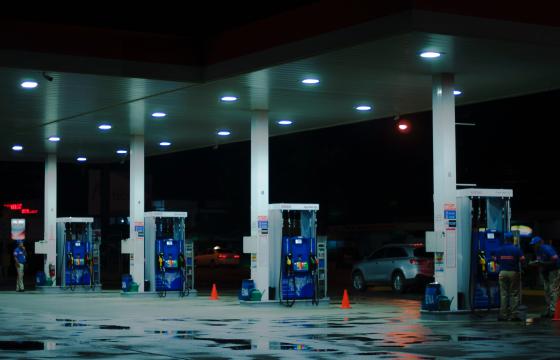
Read our latest blog post below to find out about how IoT technology is improving the efficiency and performance of retailers machines and processes.
We are currently facing a cost-of-living crisis, and in the last few months domestic budgets have been under increasing pressure as consumers see soaring bills and inflated prices for everyday goods. The effects have been particularly prevalent in the rising costs of food, with the price of groceries growing by 3.1 per cent in June, hitting the highest rate of shop price inflation since September 2008.
This increase must be absorbed somewhere, but can food retailers do anything to alleviate pressure on consumers?
Opportunity for Efficiency
Retailers themselves are in a difficult position. Just like many other businesses, they too are managing the rise in the cost of fuel (running expensive energy-hungry machines, transporting goods, etc), whilst also having a moral responsibility to help mitigate the effects rising fuel costs are having on everyday items. Digital solutions could be the answer for retailers looking to streamline operations, improve efficiency and, where possible, mitigate the costs passed on to the consumer.
Throughout this period of uncertainty, IMS Evolve continues to be a crucial partner for supermarkets around the world. Whilst the price of fuel is difficult to mitigate due to the external causes of cost inflation, there are various opportunities to reduce energy consumption within a retailer’s operations. IMS Evolve’s Internet of Things (IoT) software can deliver robust digitalisation strategies to improve the efficiency and performance of machines and processes to drive down costs and ultimately mitigate the need to pass increases to the consumer.
IMS Evolve’s solution collects, monitors, and manages millions of real-time data points from thousands of high-energy, mission-critical machines and sensors, such as refrigeration assets or HVAC systems. By using this data, the IMS solution can ensure the effectiveness and efficiency of machines and can drive automated actions, identify faults, and correct inefficiencies – all without the need for human intervention. Such strategies increase efficiency, optimise machines, and ensure that money is saved, with those savings then ultimately passed on to the consumer.
Enabling Uptake
Already a tight-margined industry, retailers are now experiencing mounting pressure due to the significant and unprecedented changes that have arisen from the war in Ukraine and rising fuel costs. For this reason, innovations such as IMS Evolve’s controls agnostic solution are invaluable as they lower the barrier to IoT adoption by removing the need to invest in new hardware or infrastructure.
Controls agnosticism means the software can connect to any addressable device, regardless of manufacturer or age, and integrate it into the IoT layer. So, where traditional monitoring and controls systems are limited to connecting to the latest assets or machines made by the same manufacturer, IMS Evolve’s technology removes manufacturer dependency and enable any and all devices to be brought into a modern, digital system. By deploying the solution as a digital layer over the top of existing infrastructure, retailers avoid costly installation of a comprehensive network of new infrastructure.
Trusted and Proven
With decades of experience and integration to thousands of retail sites globally, IMS Evolve’s technology can ‘speak the language’ of almost any device. This ‘plug and play’ approach can provide almost immediate energy savings, enabling retailers to increase efficiency as well as react to unforeseen future challenges quickly, effectively and at a lower cost.
It is predicted that food prices will continue to rise quickly (potentially of a rate of up to 15%) this summer. As inflation, emerging COVID variants and supply chain issues continue to have an impact, retailers should look to digitalisation partners to increase control, visibility, and efficiency of assets which can ultimately help them to pass on financial savings to consumers and mitigate the cost-of-living crisis on supermarket shelves.